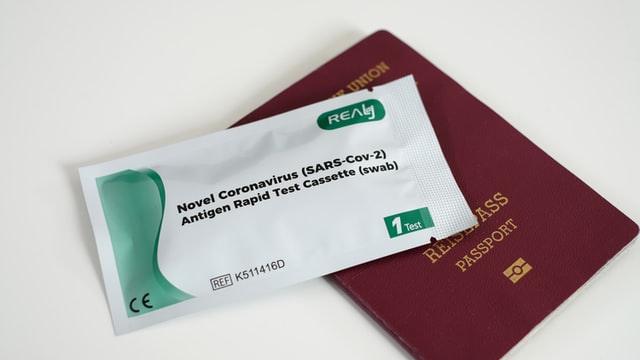Hospitality and the health passport: the eradication of hospitality

Photo by Lukas on Unsplash
In this post, Dr Maximiliano Korstanje examines the implications of introducing a vaccine passport for the institution of hospitality.
With the advent of modernity and secularisation, the belief in the afterlife declines and hospitality becomes according to Jacques Derrida “conditioned”. Hence, social trust plays a leading role in the configuration of host-guest´s relations. Anthropologically, hospitality can be defined as an ancient institution of political alliance whereby tribes agree to coordinate efforts for mutual protection in the warfare whilst exchanging citizens during times of peace. Hospitality places host and guest in equal conditions but evokes a sentiment of human reciprocity. In egalitarian conditions, hosts and guests may lie or conceal their real interests and objectives from each other. This seems to be one of the risks of accepting the unknown “other” in one’s polity. In the rite of hospitality hosts put themselves in the place of the host to understand their needs, and vice-versa, guests put themselves in the host’s place to comprehend their cosmology.
In recent years, terrorism produced in the West a culture of fear which introduced a much deeper precautionary logic. This precautionary logic involves using scenarios of terrorism to eradicate those risks which may jeopardise society in the present. The precautionary doctrine introduces a climate of fear which makes us mistrust in the “other”. Here I want to consider how this situation may lead to the death of hospitality in the West and the creation of a new feudalised world of political interests. For philosopher Jacques Derrida, hospitality is based on a language which unites native speakers whilst excluding those who are not familiar with it: the guests, who may tourists, refugees or legal immigrants.
The recent virus outbreak that originated in Wuhan, China, turned into a global pandemic which grinded to a halt not only the tourism industry but also the global trade. In order to mitigate the negative effects of the pandemic, governments adopted different measures worldwide ranging from the imposition of lockdowns, social distancing or the closure of borders and airspaces. International flights were automatically cancelled whilst airports closed. This situation may produce a new feudalized world marked by geopolitical tensions and separatist movements. Travel behaviour presents signs of a radical shift: especially digital technologies are used to scrutinise passengers, their itineraries and travel requirements. PCR test, health passports or simply health insurances are requested from the tourist even on domestic flights.
Decades ago, John Urry coined the term the “tourist-gaze” to denote a global cultural matrix that determines tourist expectations and motivations to experience authenticity away from home. The emergence of this tourist gaze coincided with a decentralised economy based on sign exchanges which often redefine cultures and landscapes. COVID-19 inaugurates a new epochal moment for mankind in which the tourist gaze is replaced with what I call the “wicked gaze”. The term wicked here connotes evilness. This does not mean that tourists are evil-doers, but that they are demonized as potential carriers of a lethal virus. Tourists are now undesired guests! I argue that COVID-19 is far from being a foundational event: it affirms a tendency created by 9/11 and the so-called War on Terror. In the post 9/11 days, Muslims were labelled potential terrorists. In this context, terrorists not only looked like us, but they could also be a friend, a neighbour or a colleague. In a post-COVID19 context, we are all suspected to be terrorists or carriers of death.
The classic passport certifies the passenger´s identity, their name, country origin and nationality, but the health passport speaks about the passenger´s biology. The term “passport” derives from the words “pass” (crossing) and “port” (door). In medieval times Kings had to verify all travellers’ identity. Nowadays, the health passport is only issued for those who have the sufficient antibodies. The health passport signifies the complete neglect of hospitality because, as a document, it scrutinizes its owner’s biology, which cannot be falsified. Those who are not inoculated or do not want to be vaccinated are unable to move and this creates a new asymmetry between mobile and immobile classes. In our post-industrial world, mobility is centred on capital, but in the post-pandemic world, the gap is accentuated by using “biological facts” to define the guest´s rights. Because biology cannot be falsified, such asymmetries lead to the death of unconditional hospitality.
Dr Maximiliano Korstanje is Reader in Economics at the University of Palermo, Argentina and author of several monographs and edited books. The forthcoming (co-authored with Dr Babu George, 2021) Mobilities and Globalisation in the Aftermath of COVID19: Emerging New Geographies in a Locked World (Basingstoke & New York, Palgrave Macmillan), expands on some of the ideas he addresses in this short blogpost.
